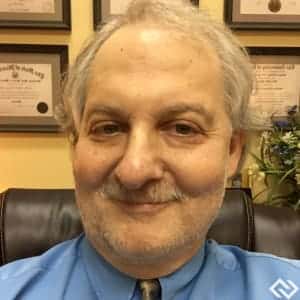Risperdal Experts Discuss Prescribing Antipsychotics to Adolescents
Updated on
This class action lawsuit focused on the pharmaceutical manufacturer of Risperdal, an antipsychotic medication. After multiple young men developed gynecomastia, with their breast tissue increasing at an alarming and unnatural rate, their doctors alleged that the condition was a side effect of their medication. A medical specialist with clinical and academic experience with the drug was required to expand on the drug’s potential effects on adolescent patients with a history of using antipsychotic medicine.
Question(s) For Expert Witness
1. Please discuss your clinical and academic background in Risperdal.
2. Is gynecomastia a common complication? What is its mechanism of action in relation to prolactin levels?
Expert Witness Response E-001060
 Though I do continue to prescribe Risperdal, the medication is not for everyone. Any doctor prescribing the drug must watch carefully for any side effects, which can include gynecomastia. Since all drugs have their side effects, the most important thing a doctor can do is monitor and carefully explain them to the patients and families to ensure informed consent. To prescribe Risperdal without any surveillance whatsoever is to practice below this standard of care. However, gynecomastia can be caused by other factors as well. Childhood obesity and other antipsychotic medicines are particularly common causes of gynecomastia, and many adolescents who develop it have never been exposed to Risperdal at all. In cases where the patient has taken Risperdal, the mechanism has to do with the hormone Prolactin. All antipsychotics block the neurotransmitter Dopamine, and when Dopamine levels go down, Prolactin goes up. As such, gynecomastia can be associated with other medications and conditions which decrease or block Dopamine. I would be interested in knowing which other treatments the patients received in the past, especially other antipsychotics, as well as to try and determine if the patients had other risk factors for gynecomastia. I would also like to know more specifics, such as the duration of treatment and the dose, how the patient was monitored for side effects, whether the medication benefitted the patient, and what other interventions have been explored to resolve the gynecomastia, if it is even still present.
Though I do continue to prescribe Risperdal, the medication is not for everyone. Any doctor prescribing the drug must watch carefully for any side effects, which can include gynecomastia. Since all drugs have their side effects, the most important thing a doctor can do is monitor and carefully explain them to the patients and families to ensure informed consent. To prescribe Risperdal without any surveillance whatsoever is to practice below this standard of care. However, gynecomastia can be caused by other factors as well. Childhood obesity and other antipsychotic medicines are particularly common causes of gynecomastia, and many adolescents who develop it have never been exposed to Risperdal at all. In cases where the patient has taken Risperdal, the mechanism has to do with the hormone Prolactin. All antipsychotics block the neurotransmitter Dopamine, and when Dopamine levels go down, Prolactin goes up. As such, gynecomastia can be associated with other medications and conditions which decrease or block Dopamine. I would be interested in knowing which other treatments the patients received in the past, especially other antipsychotics, as well as to try and determine if the patients had other risk factors for gynecomastia. I would also like to know more specifics, such as the duration of treatment and the dose, how the patient was monitored for side effects, whether the medication benefitted the patient, and what other interventions have been explored to resolve the gynecomastia, if it is even still present.
About the author
Subscribe to our newsletter
Join our newsletter to stay up to date on legal news, insights and product updates from Expert Institute.
Sign up nowFind an expert witness near you
What State is your case in?
Subscribe to our newsletter
Join our newsletter to stay up to date on legal news, insights and product updates from Expert Institute.



